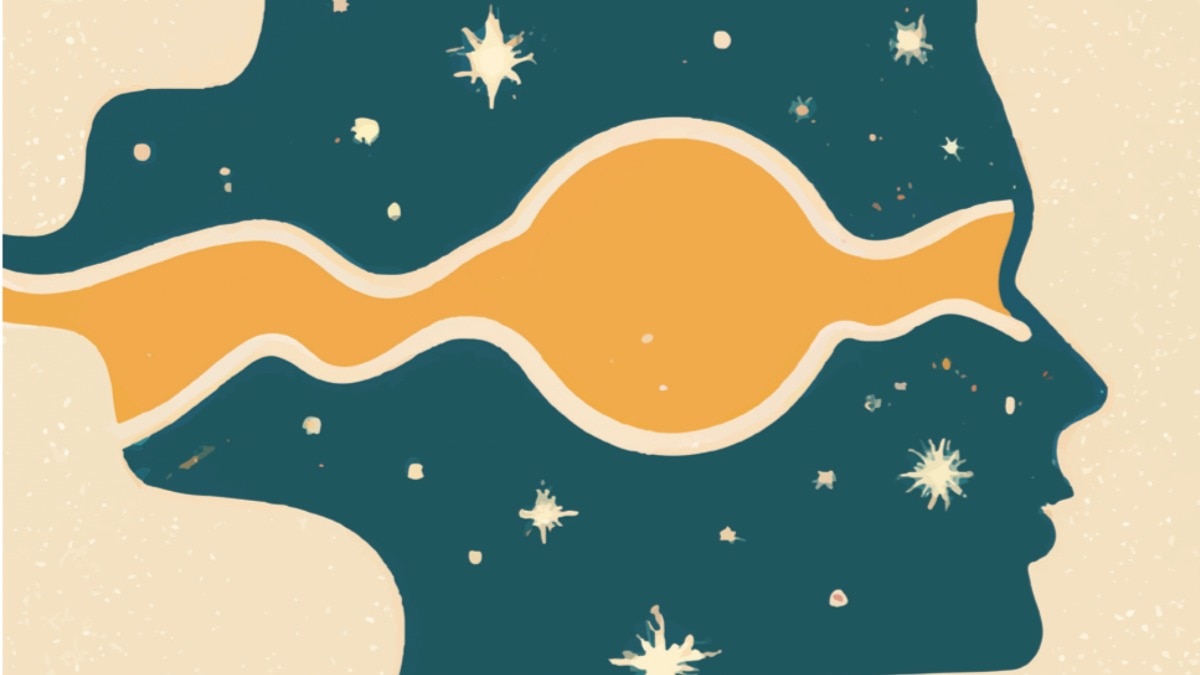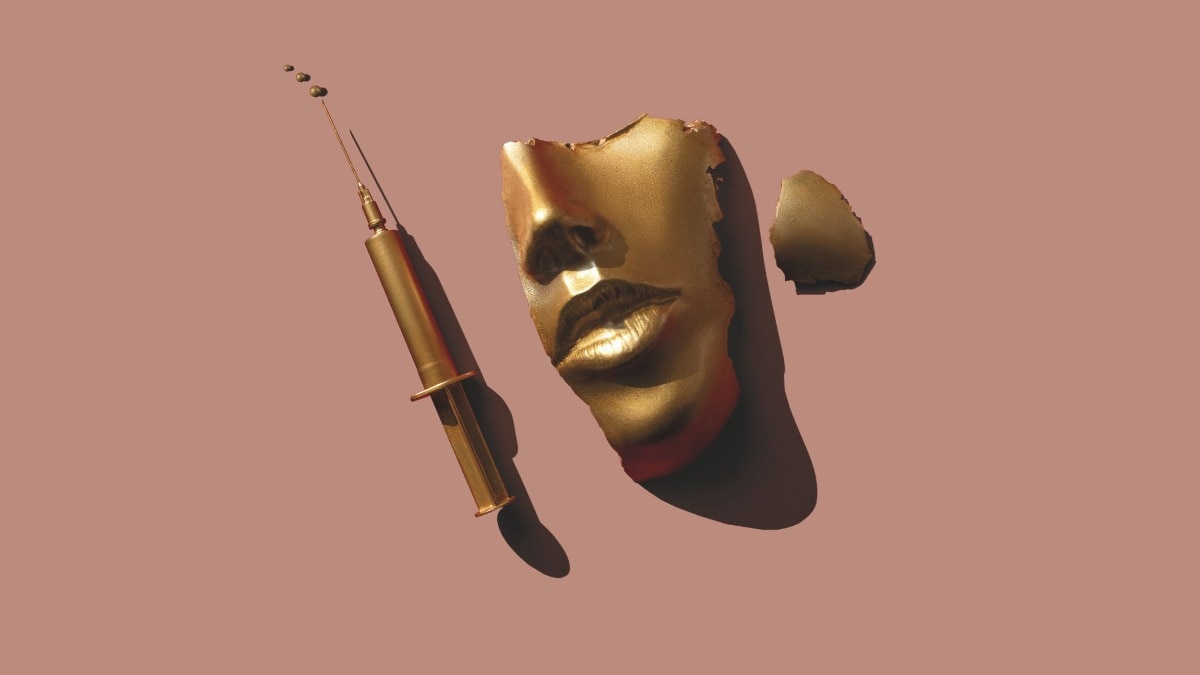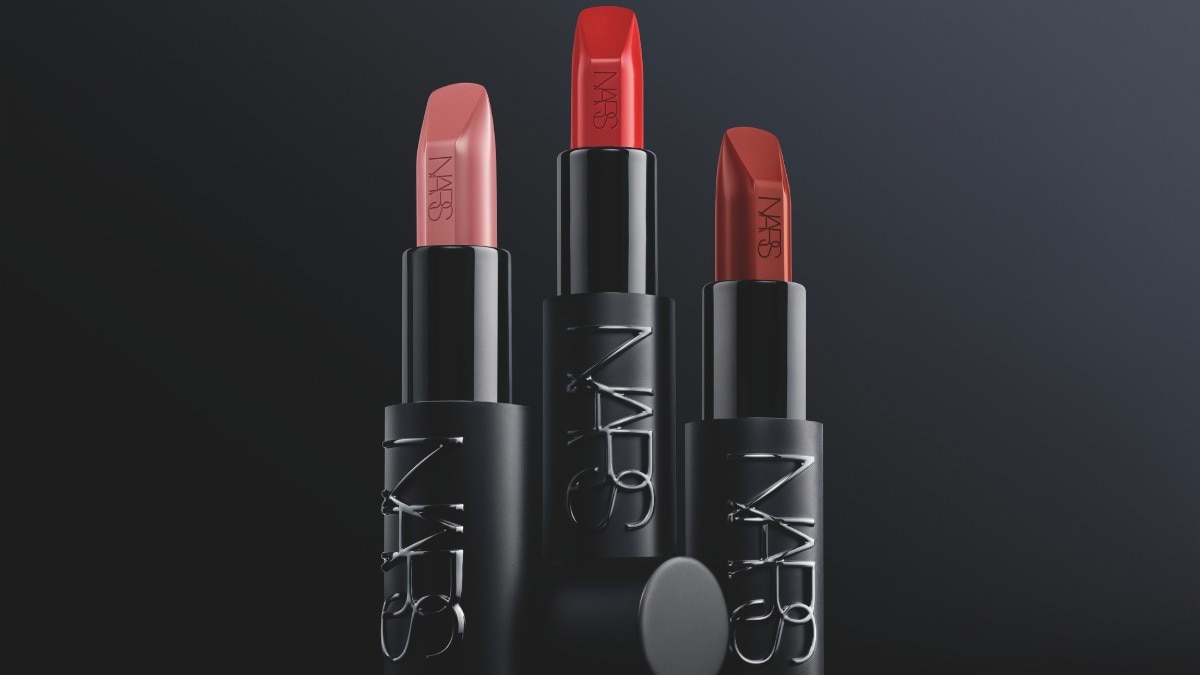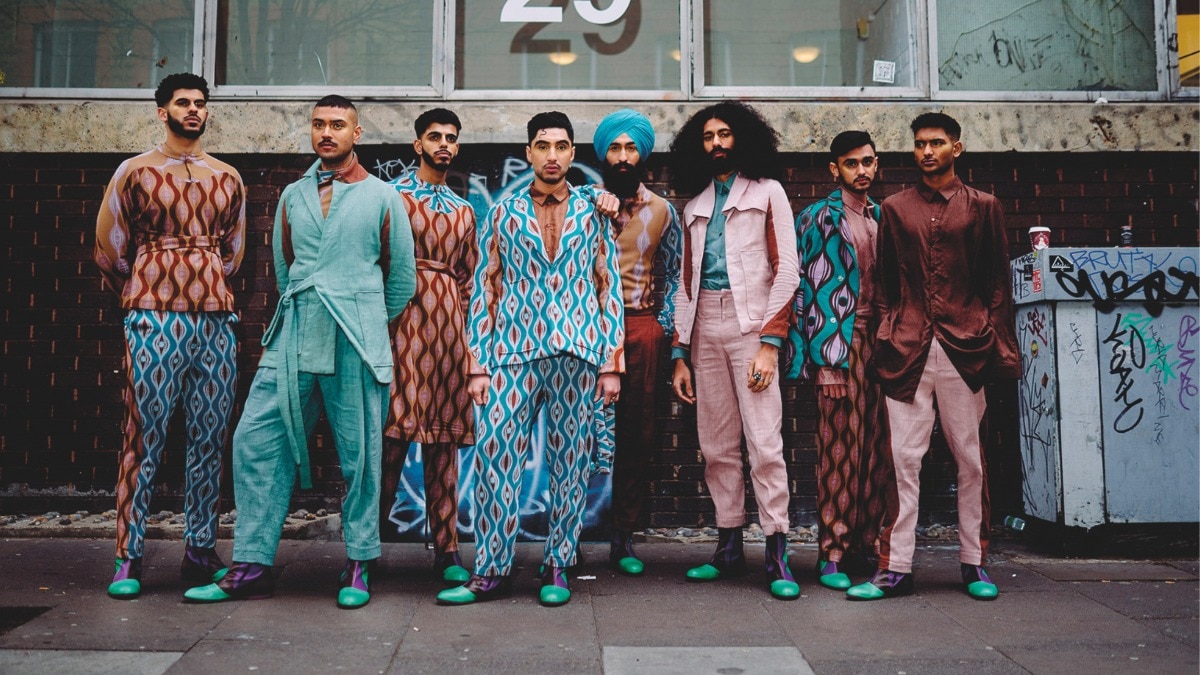
Jahnvi Lakhota Nandan on her spiritual approach to perfumery
The founder of The Perfume Library believes fragrance is an art form that is meant to be liberated, and not bottled up.


Jahnvi Lakhota Nandan’s The Perfume Library is not a brand, “it’s a studio”, she says firmly. On the face of it, there seems no difference, but as I delved deeper into a conversation with her, Nandan’s approach to perfumery felt more spiritual. The relationship between a perfumer and its buyer is intimate, and that intimacy requires for the perfumer to be vulnerable. “I feel extremely vulnerable about the fact that I am a perfumer. It opens and invites quite a lot of violence,” reveals Nandan. “Let yourself be vulnerable to that violence.”
My first conversation with Nandan was on a random Instagram message when we very briefly spoke about Sylvia Plath’s poetry, and the rest is history. Nandan is multi hyphenated—she is an architect, a writer, a designer, and a Bharatanatyam dancer. At the centre of all her interests was her love for fragrance. Nandan has always been drawn to the idea of spaces which led her to study architecture in Tokyo. It all tied up beautifully for her— the architectural nature of Bharatanatyam, the underwritten script of scent in the mudras and, later, her picking up perfumery as an art through which she liberates the nature of fragrance. “Art, whether it’s poetry, literature or dance, is just a method. I use it to reach an end, the end being the senses,” shares Nandan.
When The Perfume Library was launched at the India Art Fair in 2015, Nandan’s first-ever creation, the Aphtoori Absolue, was an absolute beloved of the Indian fragrance connoisseurs. It uses the maximum numbers of sambac jasmine and in her words, “it sold like hot cakes”. Aphtoori Absolue, an intuitive fragrance, was Nandan’s graduation fragrance, which she picked out from the back of her desk and took to the Art Fair. The ‘Afui’ comes from a Latin word meaning silence and Toori, signifying Kasturi, or the musk. “It felt the most natural thing to do, to bring out something from the past forward, to start The Perfume Library.”

Firdaus is a product of conversations between Jahnvi Lakhota Nandan and Aanchal Malhotra for the latter’s latest fiction, 'The Book of Everlasting Things'
The India Art Fair was an unconventional choice for the launch but this is what laid the foundation for what Nandan has believed fragrance to be—an art form that is meant to be liberated rather than bottled up. The visceral nature of sense of smell stood out from visual art as scent, at its core, evokes memory. There were conversations on memories of smell, stories, nostalgia, and a shared sense of intimacy that stood out in the Art Fair. While the visual arts take a front seat in the art fair, The Perfume Library was a joy for a different reason. “Our presence made art sensorial. We converted art into some kind of a movement through scent particles,” says Nandan. Almost everything about Nandan is an anti-thesis to her work as a perfumer— one can find her sitting in her Paris studio in Tokyo denims and coloured T-shirts listening to hip-hop, going on extensive treks, walking her dog, and drawing inspiration from her conversations with people. But when it comes to perfumery, she has the patience of a saint. She picks up notes of fragrances in the mundane corners of life.
Considering how important space is for Nandan, I dared to ask her where her studio would’ve been, if not in Paris—one of the historical and commercial cities for fragrance. “Maybe somewhere in Lucknow or Udaipur. There is a very heart-warming culture in Rome where families would go shopping for perfumes together on Sundays. I find that very captivating so Rome could’ve been the other choice. Tokyo has a genuine appreciation for craft and design so that’s another one,” she shares.
Nandan’s studio is a sanctorum, a sacred space where an idea grows into a fragrance. Unlike how perfume labs generally function, The Perfume Library scarps the mainstream formula and centres the fragrance around an artwork. It’s, then, over time, encapsulated into a bottle. “The artwork is in the form of a sculpture. It could be a work of landscape or a landscape art, a glass sculpture, an opera work, a choreography, or a book work. It is a gradual process where the artwork weaves itself into a fragrance. The studio work is about poetry and movement, primarily the latter, and of course, the perfume. It’s a marriage of the three, honestly.”
Nandan, who has previously collaborated with designers like Manish Arora and Tarun Tahiliani, considers these partnerships as products of close relationships with individuals, rather than something more commercial. Her recent fragrance, Firdaus, is a product of conversations between her and oral historian Aanchal Malhotra for the latter’s latest fiction, The Book of Everlasting Things. This was a one-of-a-kind coming together of literature and scent, which resulted in the birth of the limited-edition fragrance. “Aanchal was able to translate the vocabulary of scent through her words beautifully in her book. She walked into my Paris studio almost seven years ago and left after five years when we got done with the project,” says Nandan.
At the time when the craft of perfumery has been bastardised (for a lack of a better term) for solely commercial purposes, Nandan has been able to merge the art of perfumery with larger human experience. There is an attempt to encapsulate what it means to be alive in a glass bottle through scents that have survived generations and cultures. For her, fragrance is borderless. While the typical Indian scents are culturally layered and rich, the fragrance in general is a collective human experience that cannot be defined by a certain space. It criss-crosses borders and markets, exists in an almost vacuum like space.

As my conversation with Nandan was coming to an end, I couldn’t stop myself from asking her something that I have been holding onto in my mind throughout the summer. What does the feeling of ‘falling in love’ smells like? “A very contemporary, transparent rose that paves a way for you to fall in love. It includes the thorns, the leaves, everything. It is not overpowering, but at the same time, it’s a blend of everything,” explains Nandan. And what about falling out of love, I ask. “Flower of the basil plant. Tulsi maybe? There is a lot of power and roughness in it. Almost like creating boundaries with a lover. You can’t cross this now.”
The perfumer’s latest project was launched at the opening of Calouste Gulbenkian Museum in Lisbon where four of her fragrances were on display in September. These fragrances were a combination of poetry, dance, music, and architecture.
All images: The brands
Lead image: Jahnvi Lakhota Nandan
This piece originally appeared in the October-November print edition of Harper's Bazaar India
Also read: Tamil creatives are creating a dialogue between tradition and modernity
Also read: François Nars on how the brand's latest collection is designed to empower wearers with confidence










